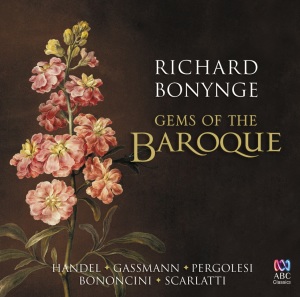Renata Tebaldi (soprano)
New Philharmonia Orchestra/ English Chamber Orchestra
Richard Bonynge (conductor)
ABC Classics 482 1059
TPT: 77’47”
reviewed by Neville Cohn
 Far and away the chief joy of this compilation is Richard Bonynge’s direction of the English Chamber Orchestra in a series of overtures and interludes by Handel.
Far and away the chief joy of this compilation is Richard Bonynge’s direction of the English Chamber Orchestra in a series of overtures and interludes by Handel.
These purely orchestral tracks make for delightful listening. They sparkle and for the most part, when called for, they are engagingly buoyant, the playing a model of the musical discipline that has made the ECO the world beater it is. In more introverted moments, the players are no less persuasive.
While the Good Humoured Ladies suite, Tommasini’s arrangements for orchestra of some of Scarlatti’s harpsichord sonatas, do not really preserve the buoyant essence and energy of the keyboard originals, Bonynge and the ECO are never less than professional in their approach to the score. The introverted Sonata in B minor is finely considered, and the much loved Tempo di ballo
comes across as a gentle pizzicato delight.
As a child growing up in Cape Town in the 1950s, I recall vividly the family listening often to Renata Tebaldi and Mario del Monaco on the radio. It was at the height of their fame. Tebaldi, who retired from the stage by 1973 – wisely – made these recordings some years after that. But by the mid1970s, the once pristine, exquisite liricospinto voice had begun to be gently touched by time – and this is apparent in some of the baroqueera arias she sings with the New Philharmonia Orchestra on this CD.
The middle range, still largely intact, impresses but in the upper reaches of the register, the superb control and staying power of Tebaldi’s early years are less apparent. And control of the lower range wavers. But Tebaldi’s interpretative powers, her ability to reveal even the subtlest change of mood, are as glowingly evident as ever. She brings, for instance, a most effective vituperative edginess to Stizzoso, mio stizzoso from Pergolesi’s La Serva Padrona. And there is a perfect
assessment of the melancholy essence of Piango, gemo which is attributed to Vivaldi.
